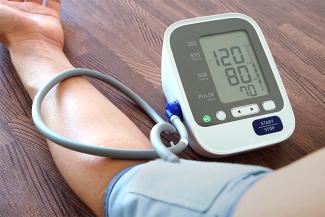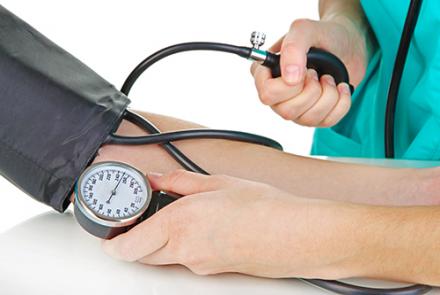In addition to medical treatment of hypertension, you also need to make lifestyle changes to manage your Blood Pressure:
Food and Nutrition
A healthy eating plan can both reduce the risk of developing high blood pressure and lower an already elevated blood pressure. For an overall healthy eating plan, consider the DASH (Dietary Approaches to Stop Hypertension) diet. The DASH eating plan includes whole grains, poultry, fish and nuts and has reduced amount of salt, fats, red meat, sweets and…

If you plan to measure your blood pressure at home, you will need to buy a home blood pressure monitor. It is important to be sure that the blood pressure monitor you choose is accurate and the right one for you. Also, you must use the monitor properly.
Sometimes a doctor may ask you to monitor your hypertension/blood pressure more frequently. In such cases, it may make sense to buy a BP monitor for home use. Here is some guidance on how to choose a BP monitor and how best to use it.
How to choose a BP monitor:
- Select a monitor that goes around your upper arm. Wrist and finger monitors are not as precise.
- Select an automated monitor, which has a cuff that inflates itself.
- Look for a digital readout that is large and bright enough to see clearly.
- Consider a monitor that also plugs into your smartphone to transfer the readings to an app, which then creates a graph of your progress. Some devices can send readings wirelessly to your phone.
How to use the BP monitor properly:
- Avoid caffeinated or alcoholic beverages 30 minutes beforehand.
- Avoid smoking 30 min before.
- Sit quietly for five minutes with your back supported and your legs uncrossed.
- Support your arm so your elbow is at or near heart level.
- Wrap the cuff over bare skin.
- Don't talk during the measurement.
- Leave the deflated cuff in place, wait 1 to 3 minutes, then take a second reading. If the readings are close, average them. If not, repeat again and average the three readings.
- Keep a record of your blood pressure readings, including the time of day.
PatientsEngage Tips:
Do not take readings too frequently. It will cause anxiousness and higher readings.
Make sure you get the BP monitor calibrated with your GP/family doctor
Make sure the battery is not low. Low batteries can make BP reading inaccurate.
Must Read: 10 Clear Tips To Manage Hypertension
Download Yoga for Hypertension EBook
Changed
15/Jul/2023
Community
Condition

















